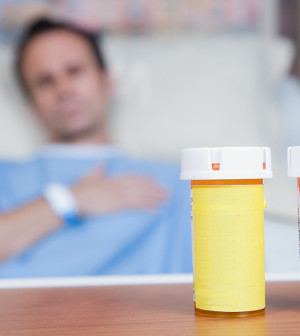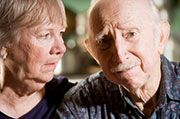- The Best Time of Day to Drink Bone Broth to Maximize Health Benefits
- 8 Ways to Increase Dopamine Naturally
- 7 Best Breads for Maintaining Stable Blood Sugar
- Gelatin vs. Collagen: Which is Best for Skin, Nails, and Joints?
- The Long-Term Effects of Daily Turmeric Supplements on Liver Health
- Could Your Grocery Store Meat Be Causing Recurring UTIs?
- Are You Making This Expensive Thermostat Error This Winter?
- Recognizing the Signs of Hypothyroidism
- 10 Strategies to Overcome Insomnia
- Could Artificial Sweeteners Be Aging the Brain Faster?
ICU-Related Depression Often Overlooked, Study Finds


One-third of patients admitted to an intensive care unit develop depression that causes physical symptoms rather than the typical psychological signs, a new study finds.
As a result, their condition may go undiagnosed and they may not get needed help, the research suggested.
“It’s a significant public health issue. We need to pay more attention to preventing and treating the physical rather than psychological symptoms of depression in ICU survivors,” said study leader James Jackson, a psychologist and assistant professor of medicine at Vanderbilt University Medical Center in Nashville.
The physical signs of depression included weakness, changes in appetite and fatigue, the researchers said.
“The physical symptoms of depression are often resistant to standard treatment with antidepressant drugs and we need to determine how best to enhance recovery with a new focus on physical and occupational rehabilitation,” Jackson added.
The study involved over 800 patients with respiratory failure or a life-threatening blood infection called sepsis who were admitted to intensive care units in Nashville. Average age of the patients was 61.
Using various tests, the researchers evaluated the study’s participants for depression, post-traumatic stress disorder (PTSD) and functional disability at three months and one year after discharge. They also assessed the patients’ quality of life.
The research, published online April 7 in The Lancet Respiratory Medicine, found that 37 percent of the patients had at least mild depression at three months. Of these, two-thirds had mainly physical symptoms. One-third of the patients who were depressed still had symptoms at the 12-month follow-up.
While patients with a history of depression were more likely than others to experience symptoms of depression after their ICU stay, depression affected about 30 percent of those who had no mental health issue at the three-month and 12-month assessments. Meanwhile, only 7 percent of the patients developed symptoms of PTSD.
“Substantial time and energy has been invested in addressing PTSD in survivors of critical illness, but our findings suggest that it is less pervasive than depression,” Jackson said in a journal news release. “Patients of all ages are at risk of developing post-ICU mental health and functional disabilities and more needs to be done to ensure that these impairments don’t become permanent.”
At three months, the study also showed one-third of the patients experienced disability in performing normal daily activities, such as eating, bathing and getting dressed without help.
More than one-quarter of patients also had trouble performing necessary tasks, such as managing money, making travel plans, writing a shopping list or following a recipe at three months.
Overall, the study found that patients treated in an intensive care unit are three times more likely to develop depression than the general population. Depression is also four times more common among people who have survived a critical illness than post-traumatic stress disorder (PTSD).
Some of the typical signs of depression include persistent sadness or feeling worthless, hopeless or “empty,” according to the U.S. National Institutes of Health.
More information
The American Psychological Association provides more information on depression.
Source: HealthDay
Copyright © 2026 HealthDay. All rights reserved.










